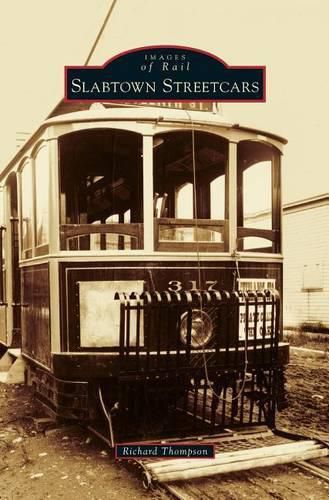Readings Newsletter
Become a Readings Member to make your shopping experience even easier.
Sign in or sign up for free!
You’re not far away from qualifying for FREE standard shipping within Australia
You’ve qualified for FREE standard shipping within Australia
The cart is loading…






This title is printed to order. This book may have been self-published. If so, we cannot guarantee the quality of the content. In the main most books will have gone through the editing process however some may not. We therefore suggest that you be aware of this before ordering this book. If in doubt check either the author or publisher’s details as we are unable to accept any returns unless they are faulty. Please contact us if you have any questions.
No area of Portland, Oregon, played a more important role in street railway history than Northwest Portland and the neighborhood known as Slabtown. In 1872, the city’s first streetcars passed close to Slabtown as they headed for a terminus in the North End. Slabtown was also home to the first streetcar manufacturing factory on the West Coast. In fact, until locally built streetcars began to be replaced by trolleys from large national builders in the 1910s, more than half of all rolling stock was manufactured in shops located at opposite ends of Northwest Twenty-third Avenue. All streetcars operating on the west side of the Willamette River, including those used on the seven lines that served Northwest Portland, were stored in Slabtown. When the end finally came in 1950, Slabtown residents were riding two of the last three city lines.
$9.00 standard shipping within Australia
FREE standard shipping within Australia for orders over $100.00
Express & International shipping calculated at checkout
This title is printed to order. This book may have been self-published. If so, we cannot guarantee the quality of the content. In the main most books will have gone through the editing process however some may not. We therefore suggest that you be aware of this before ordering this book. If in doubt check either the author or publisher’s details as we are unable to accept any returns unless they are faulty. Please contact us if you have any questions.
No area of Portland, Oregon, played a more important role in street railway history than Northwest Portland and the neighborhood known as Slabtown. In 1872, the city’s first streetcars passed close to Slabtown as they headed for a terminus in the North End. Slabtown was also home to the first streetcar manufacturing factory on the West Coast. In fact, until locally built streetcars began to be replaced by trolleys from large national builders in the 1910s, more than half of all rolling stock was manufactured in shops located at opposite ends of Northwest Twenty-third Avenue. All streetcars operating on the west side of the Willamette River, including those used on the seven lines that served Northwest Portland, were stored in Slabtown. When the end finally came in 1950, Slabtown residents were riding two of the last three city lines.